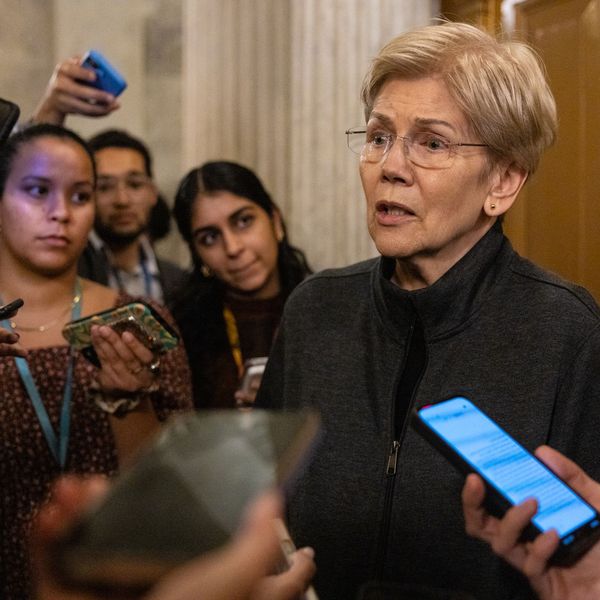Get the popcorn ready, the much-anticipated Financial Crisis Inquiry
Commission hearings start this week, and this time (unlike last month
when the President himself summoned them to Washington) the executives
from all the big Wall Street banks will actually deign to show up!
It's going to be the Ferdinand Pecora investigation all over again . . . kind of.
One key difference between the modern-day Pecora Commission, as some
people are calling it, and the original is that the current commission
lacks a Pecora--the crusading investigator whose riveting
cross-examination of his era's bankers exposed Wall Street's excesses
and inspired the New Deal banking reforms.
The web site What Caused the Crisis
sponsored by the Roosevelt Institute--points out this weakness in the
commission in an open letter signed by Joseph Stiglitz, Robert Reich,
and William Black, among others, demanding that the commission appoint
a single investigator with "a proven record of exposing fraudulent
elites and institutions."
Unfortunately, there is no such individual on the current commission.
But there are a number of promising members.
Chief among these is Brooksley Born, selected by Nancy Pelosi, and dubbed the "Cassandra of the derivatives crisis" by the Washington Post
for her far-sighted warning about credit default swaps ten years ago,
when she was head of the Commodity Futures Trading Commission.
Last may, in a profile by Manuel Roig-Franzia, the Post described
Born's fruitless efforts to warn Congress about the coming financial
crisis:
"Before taking office, Born had been a high-octane attorney, an
American Bar Association power player, a noted advocate of feminist
causes and co-founder of the National Women's Law Center. But none of
that carried much weight when she crossed over into government; for all
her legal experience, she was a woman who wasn't adept at playing the
game. She could be unyielding and coldly analytical, with a litigator's
absolute assertions of right and wrong. And she was taking on Beltway
pros, masters of nuance and palace politics. She marched into
congressional hearing after congressional hearing -- pin neat, always
with a handbag -- but no one really wanted to listen."
That has changed now that Born was proven right.
Born's nine other colleagues on the Commission
include former Florida Senator and Governor Bob Graham, picked by Harry
Reid, and Mitch McConnell and John Boehner's picks: vice chairman Bill
Thomas and former Bush Administration economic advisor Keith Hennessey.
The politics of the financial crisis and ensuing bank bailout do not break down along Republican vs. Democratic lines.
Just ask Barney Frank, the liberal Massachusetts Democrat who is
chairman of the House Financial Services Committee and author of
regulatory legislation that, while it establishes a Consumer Financial
Protection Agency, also supports the big banks by authorizing the Fed
to pay outs $4 trillion in emergency funds in the event of another Wall
Street crash. As Bloomberg columnist David Reilly opines:
"So much for 'no-more-bailouts' talk. That is more than twice what the
Fed pumped into markets this time around. The size of the fund makes
the bribes in the Senate's health-care bill look minuscule."
Tea Partiers and leftwingers alike are galvanized in their opposition to the "banksters" and their cronies on Capitol Hill.
If the Commission does its job right, it should put on quite a show for Americans of every political stripe.
How is it that we taxpayers are paying out billions in bailout money
to banks that are using those funds to inflate their balance sheets and
pay their executives bonuses? How come Goldman Sachs managed to lose
investors' money in the subprime mortgage market, but the bank itself
came out ahead by betting against those same money-losing investments?
Instead of the Obama Administration's tax on banks that may turn out
to be a drop-in-the-bucket public relations ploy like the cap on
bonuses, Yves Smith of Naked Capitalism suggests a windfall tax that directly tackles the misbegotten notion that the banks have actually earned their profits:
"The Administration is so profoundly captured by the banksters that
it sees nothing wrong with what is happening, save the political
fallout," Smith writes. "It's perfectly OK for banks to go right back
to status quo ante, looting their firms by paying themselves too much
in bonuses and not retaining enough in the way of risk buffers. And why
should they change behavior, now that it has been conclusively
demonstrated that if they screw up in a big way, the government will
run in, and they make even more money as a result?"
The banks deserve a big tax to pay back the bailout, Smith quotes
the BBC's Robert Peston reporting, because their profits are "an
unrepeatable jackpot, the consequence of the authorities' bail-out of
the economy, and not the result of their great prowess."
Add to that the rollback of regulations the original Pecora
Commission inspired: Glass-Steagall, "too big to fail" banks, an SEC
with teeth, and you have the whole script for the current crisis.
Let a real public hearing begin!


